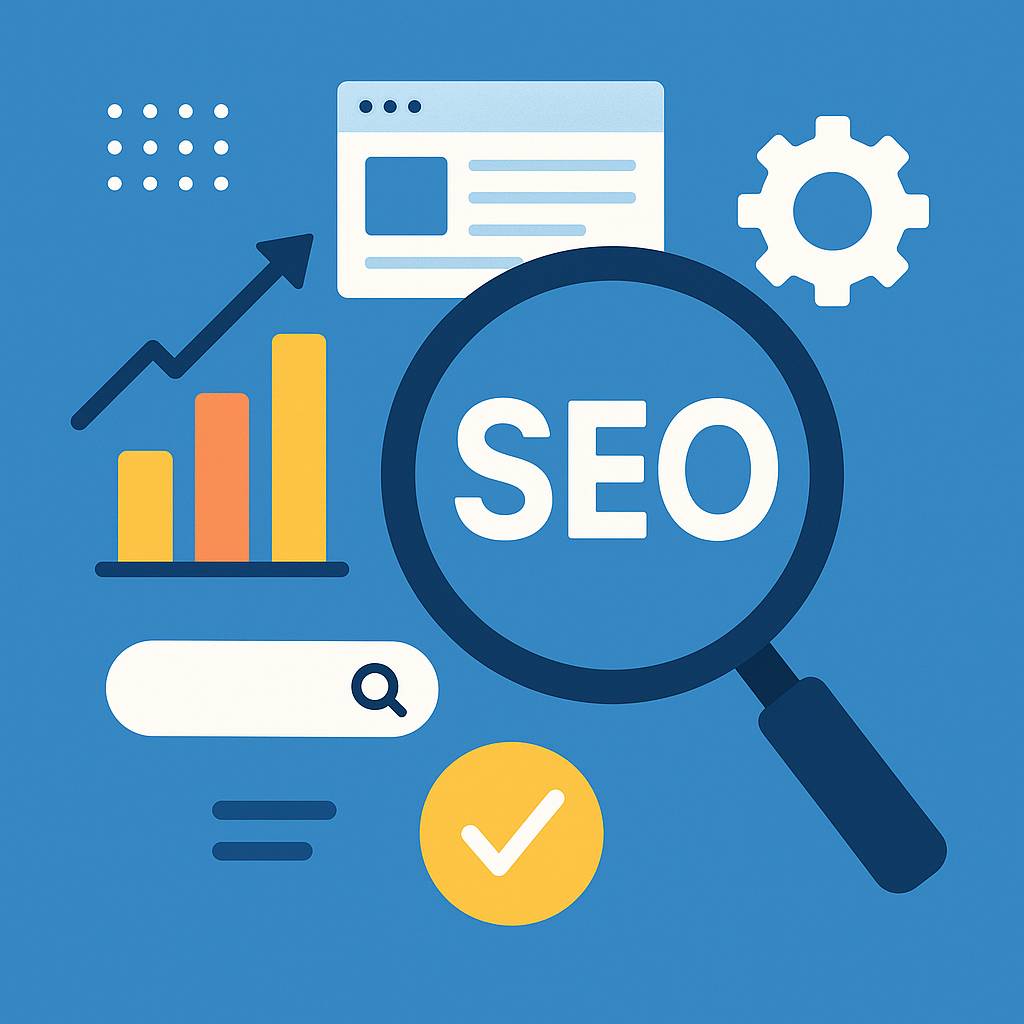What is SEO?
SEO stands for Search Engine Optimization. It’s a fancy term for making your website better for search engines like Google. When you do SEO right, your site can show up higher in search results. This means more people can find you online.
Why is SEO Important?
Imagine you have a fantastic bakery. You bake the best cupcakes in town. But if no one knows about your bakery, how can they enjoy your cupcakes? SEO helps people find your website, just like a good sign helps people find your bakery.
More Visitors
When your site ranks higher, more people click on it. More visitors mean more chances to turn them into customers.
Builds Trust
When your website shows up on the first page of Google, people trust you more. They think, “This site must be good if it’s on the first page.”
Cost-Effective Marketing
Unlike paid ads, SEO is free. Sure, you may invest time and effort, but it pays off in the long run. You can get traffic without paying for every click.
How Does SEO Work?
SEO is like a puzzle. You need to put the right pieces together. Here are the main parts:
Keywords
Keywords are the words or phrases people type into search engines. For example, if someone wants to find a cupcake recipe, they might search for “easy cupcake recipe.” Your job is to use the right keywords in your content.
On-Page SEO
This is all about what’s on your website. Here are some key elements:
- Title Tags: This is the title of your page. Make it catchy and include your main keyword.
- Meta Descriptions: This is a summary of your page. It should be engaging and tell people what to expect.
- Headings: Use headings to break up your content. They help readers and search engines understand your content.
- Content: Write clear and valuable content. Make sure to use your keywords naturally.
Off-Page SEO
Off-page SEO is everything outside your website. It mainly focuses on backlinks. A backlink is when another website links to yours. Think of it as a vote of confidence. The more quality backlinks you have, the better your site will rank.
Technical SEO
This part ensures that your site runs smoothly. Here are some technical aspects to consider:
- Site Speed: Your website should load quickly. If it’s slow, visitors will leave.
- Mobile-Friendliness: Your site should look good on phones and tablets.
- Secure Website: Use HTTPS instead of HTTP. This keeps visitors safe.
Steps to Improve Your SEO
Now that you know what SEO is, let’s look at how you can improve it.
Step 1: Research Keywords
Start by finding keywords related to your business. Use tools like Google Keyword Planner or Ubersuggest. Look for keywords that have a good search volume but low competition.
Step 2: Optimize Your Content
Once you have your keywords, it’s time to use them. Write engaging content that answers questions. Use your keywords in the title, headings, and throughout your writing. But don’t overdo it. Make it natural.
Step 3: Build Backlinks
Reach out to other websites. Ask them to link to your content. Guest posting is a great way to get backlinks. Write a helpful article for another website and include a link back to yours.
Step 4: Improve Technical SEO
Check your site speed using tools like Google PageSpeed Insights. Make sure your website is mobile-friendly and secure. Fix any broken links, too.
Step 5: Monitor Your Progress
Use tools like Google Analytics to track your website’s performance. See how many visitors you get and what pages they like best. Adjust your strategy based on the data.
Common SEO Mistakes to Avoid
Even pros make mistakes. Here are some common SEO blunders:
- Ignoring Mobile Users: If your site isn’t mobile-friendly, you’ll lose visitors.
- Keyword Stuffing: Don’t cram keywords into your content. It makes it hard to read.
- Neglecting Meta Tags: Meta titles and descriptions help search engines understand your content.
- Not Updating Content: Old content can hurt your rankings. Keep it fresh and relevant.
Conclusion
SEO may seem complicated, but it’s all about helping people find your website. By using the right keywords, optimizing your content, and building links, you can improve your ranking. Remember, SEO is a marathon, not a sprint. Be patient and keep learning.
FAQs
1. How long does it take to see SEO results?
SEO results can take a few months. Be patient and keep working on it.
2. Do I need to hire an SEO expert?
It depends on your needs. If you’re busy, an expert can help. But learning SEO yourself is valuable.
3. Can I do SEO for free?
Yes! Many SEO tools are free. You can also learn through online resources.
4. How often should I update my website?
Regular updates are good. Aim for at least once a month to keep content fresh.
5. What is the best SEO tool?
There are many great tools. Google Analytics and Yoast SEO are popular choices.
6. Is SEO a one-time task?
No, SEO is ongoing. You need to keep optimizing and adapting to changes.
7. Can social media help with SEO?
Yes, social media can drive traffic and increase visibility, which can help your SEO.

Leave a Reply